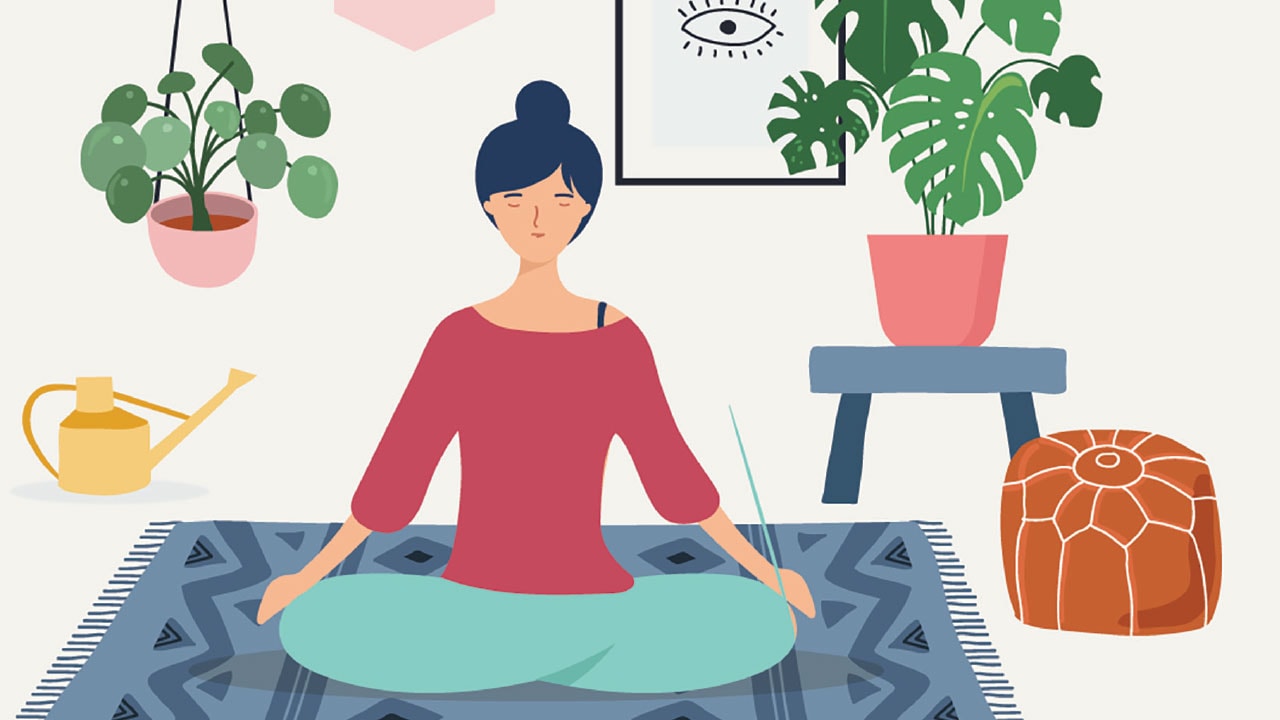
Living the teachings — understanding yoga’s everyday spiritual meanings
SANTOSHA: COMPLETE CONTENTMENT
By Sue Pugh
There are ‘eight limbs’ of yoga…the postures (asanas) make up just one limb. When we really ‘get’ yoga, we grow to understand that it is about so much more than simply adopting postures and moving the body. The Niyamas are the second limb of the eight limbs of yoga. They specifically remind us of our duties towards ourselves and are considered to be character building, encouraging us to look inwards, as opposed to the Yamas, which largely have an external/social focus, looking at our relationship with others.
The second Niyama is Santosha, which literally translates to ‘complete contentment’. For many of us this would appear to be utterly unobtainable, enough to make us not want to read on, an example of ‘toxic positivity’. We may feel that this means we have to accept our lives just as they are and give up on any dreams that we may have. Santosha teaches us that this is not the case and yogic philosophy does not discourage dreams or aspirations. Instead, it teaches us that we can accept and be content with how we are now and also invest in or work towards change or improvement.
Santosha asks us to try and ‘stay in the centre’ appreciating what we already have instead of constantly being preoccupied by satisfying our wants and avoiding anything that we dislike. Oscar Wilde once said:
“There are two kinds of unhappiness in the world: not getting what you want, the other being, getting what you want”. This is so true of modern living, where many of us are constantly planning the next adventure, the next dopamine hit, only to discover that when we get it the feeling is transient and doesn’t leave lasting happiness after all.
Such seeking and avoiding also takes up a great deal of energy and depletes us. The way towards a more content life is to start practicing being content with discontent, sitting with it, not chasing the next fantasy or adventure. We should remind ourselves that ‘this too shall pass’ and that everything in life is temporary, the good things and the bad.
This then allows us the space to more fully appreciate what we do already have. We are reminded that there is no contentment without gratitude. By turning our attention away from what we don’t have, towards what we do already have, we will slowly strengthen our ability to notice the good things in our lives before the bad and be guided towards greater contentment. Ultimately, it teaches us that happiness is an inside job and that we have to start looking within for the answers.
Sue Pugh is a yoga teacher and founder of vitabonayoga.com and yogainspecialplaces.com





